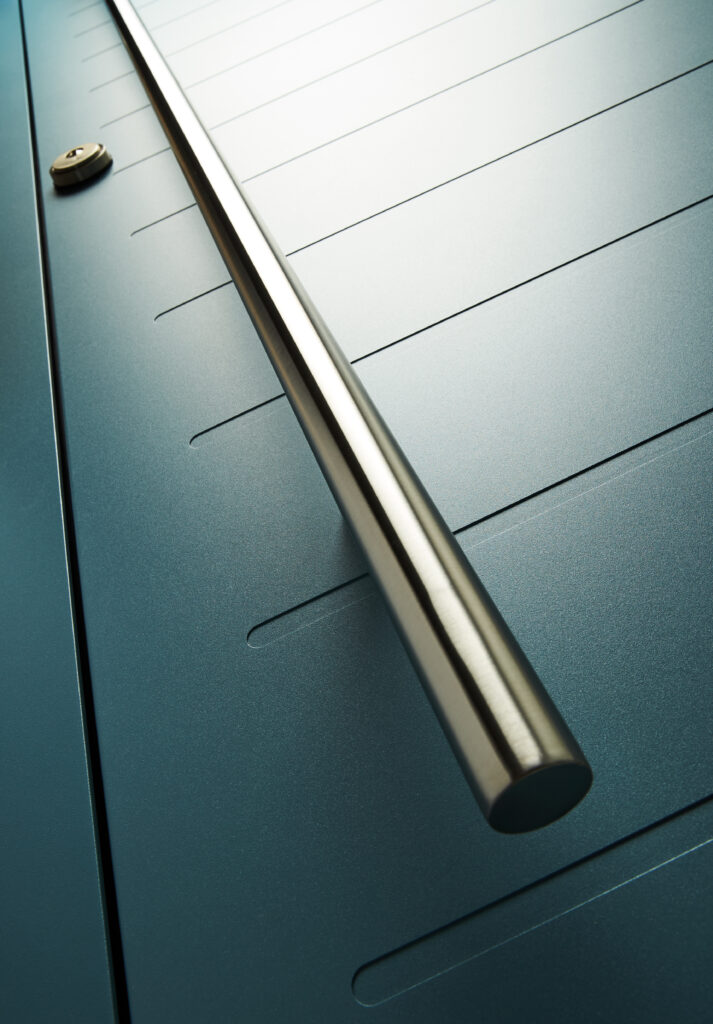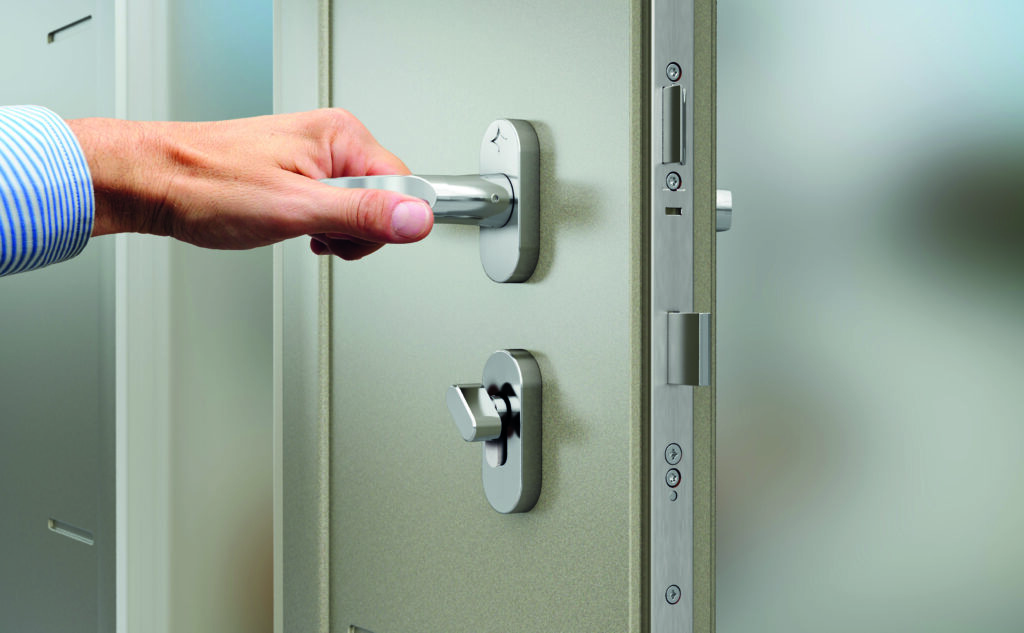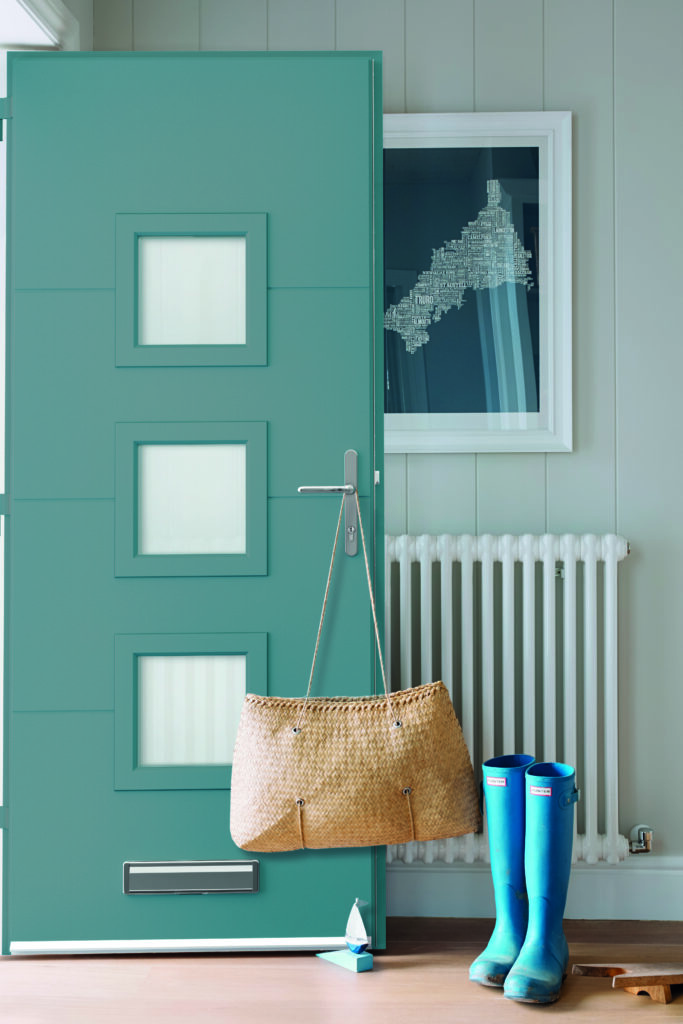Aluminium composite doors are built to last. Learn how long an aluminium composite door performs, how to maintain it, and why it’s a smart investment.
What You’ll Learn:
- How long aluminium composite doors really last
- Why aluminium composite doors are more durable than timber or uPVC
- Simple maintenance tips for long-lasting performance
- Real customer feedback and lifespan comparison
(Estimated Reading Time: 4-5 Minutes)

Introduction
Wondering how long aluminium composite doors really last? If you’re thinking about investing in a new front door, it’s important to know how durable and reliable it’ll be over time. In this guide, we’ll explore the average lifespan of an aluminium composite door, what affects its longevity, and how it compares to other popular options like timber and uPVC. You’ll also learn what kind of maintenance (if any) these doors actually need—and why aluminium composite doors are a long-term investment for modern UK homes.
A Quick Answer First: How Long Do They Last?
With proper installation and minimal maintenance, a high-quality aluminium composite door can last 30 years or more.
That’s not just a claim—it’s backed by technical performance, lab testing, and the real-world results we’ve seen from customers all over the UK. It also explains why Smart Signature and Smart Designer Doors come with guarantees of up to 25 years on the paint finish, 10 years on manufacturing, and 5 years on glazing.
Why Aluminium Composite Doors Last So Long
1. Aluminium is Incredibly Durable
Unlike timber or even uPVC, aluminium doesn’t warp, rot, or swell when exposed to moisture. It’s corrosion-resistant and stands up brilliantly to the UK’s wet, windy, and often salty coastal climates.
And when powder-coated (as all GFD aluminium doors are), the finish bonds to the metal, providing a hard-wearing surface that resists scratches, fading, and discolouration for decades.
2. High-Performance Insulated Core
Inside your door is a high-density polyurethane or timber core, engineered for both insulation and strength. These materials don’t degrade over time the way foam panels or MDF might in lower-end doors.
This means:
- Thermal efficiency is retained long-term
- Structural integrity is preserved, even with heavy use
3. Toughened Glass and Hardware Built to Last
If your door has glazing, it’s likely using 66mm triple-glazed laminated glass that offers more than just style—it also resists impact and insulates effectively. Even in high-exposure environments, the seals and coatings on Smart Signature or Smart Designer Doors are designed to withstand decades of use without losing performance.
Door hardware like hinges, handles, and locking mechanisms also play a role. Every component in these doors is tested for:
- Cycle endurance (how many times it can be opened/closed)
- Corrosion resistance
- Security performance over time
The result? Minimal wear, no squeaky hinges, and consistent security—year after year.
Lifespan Comparisons: Aluminium Composite vs Other Doors
| Door Type | Typical Lifespan | Notes |
| Aluminium Composite | 30+ years | Minimal maintenance required |
| Standard Composite (GRP skin) | 20–25 years | May fade or delaminate over time |
| uPVC | 15–20 years | Can discolour and warp |
| Timber | 20–30 years | Requires regular painting or sealing |
| Steel | 20–25 years | Strong but prone to rust without proper coatings |
Aluminium composite doors comfortably top the chart when it comes to longevity—especially in UK conditions.

What Can Reduce a Door’s Lifespan?
Even the best-made door can deteriorate faster if it’s not properly looked after. Here are some common factors that can shorten the life of your door:
- Incorrect installation: Poor alignment or loose fitting can cause operational issues and water ingress. Always use a professional supply & fit service.
- Neglected maintenance: Leaving debris in the threshold or failing to clean the seals occasionally can lead to unnecessary wear.
- Extreme environments: While aluminium resists corrosion, homes directly on the coast may still need more regular cleaning to remove salt deposits.
Maintenance: What You Actually Need to Do
Thankfully, Smart aluminium doors are incredibly low maintenance. Here’s what we recommend:
Every 1–2 months:
- Wipe down aluminium surfaces with mild soapy water.
- Avoid abrasive cleaners or solvents that can damage the powder coating.
Every 6 months:
- Clean the threshold and drain slots to prevent blockages.
- Check the rubber seals and apply a silicone spray to maintain flexibility and airtightness.
Once a year:
- Lightly oil hinges and locking mechanisms with a manufacturer-approved lubricant.
- Clean and polish any stainless-steel handles using the Smart Care Kit.
This simple routine ensures your door stays as beautiful and functional as the day it was installed.
Real-World Durability: What Our Customers Say
We regularly hear from homeowners who’ve had their aluminium composite doors for 5, 10, even 15 years with barely any signs of wear. They report:
✅ No warping or sticking
✅ Consistent ease of operation
✅ No flaking, rust, or paint fade
✅ Locks that work as smoothly as day one
It’s this kind of real-life performance that has helped make aluminium composite doors one of the most trusted upgrades for UK homes.
The Guarantee Breakdown (Smart Doors)
| Feature | Coverage Period |
| Powder Coating | 25 years (marine guarantee available separately) |
| Manufacture | 10 years |
| Glazing | 5 years |
| Hardware | 1 year standard; optional extended hardware warranties available |
These warranties reflect how confident the manufacturer is in the product—and give you added peace of mind.
What Happens at the End of the Door’s Life?
Unlike uPVC or GRP, aluminium is 100% recyclable. When the door eventually reaches the end of its long life, it can be broken down and repurposed into other building materials with minimal environmental impact.

Conclusion
An aluminium composite door is more than just a beautiful front entrance—it’s a long-term investment in your home’s security, energy performance, and style. With a lifespan of 30 years or more, and a build quality that’s second to none, it offers superb value over time.
At Aluminium Composite Doors, we stand by every Smart Signature and Designer Door we sell, knowing they’ll serve our customers well for decades. And with expert installation and honest advice at every step, you’re never left guessing.
Still on the fence? You might be wondering:
- “Is the upfront cost worth the extra years?”
- “Will I really notice a difference between this and a standard composite?”
- “How often will I actually have to maintain it?”
We’re here to answer all that—and more.
At GFD Homes, we’re proud to supply some a wide range of composite doors as well as the aluminium composite doors — trusted by homeowners and trades alike. These are doors we’d happily fit in our own homes. Need help choosing the right one? We’re here to make it simple.
✅ Aluminium or uPVC doors
✅ Composite front doors
✅ Heritage-style and modern glazing
✅ Customisable options to suit any style
🛒 Browse the full collection at www.aluminiumcompositedoors.com.
📞 Or call 01642 309576 for expert guidance and a no-pressure quote.
In a rush? Why not contact us via Whatsapp
👉 Explore our full range of Aluminium Composite Doors
Browse our Articles to Learn More
- Are Aluminium Composite Doors Secure? The Truth Inside
- Inside Aluminium Composite Doors: What You Should Know
- Are Aluminium Composite Doors Worth It? A Homeowner’s Guide
- Trade Aluminium Composite Doors: looking for trade prices? Visit our trade site, The Trade Village
Common Questions: Aluminium Composite Door Lifespan
1. Will my door colour fade over time?
Not with Smart Signature or Designer doors. The powder-coated finish is UV-stable and comes with a 25-year paint guarantee.
2. What if I live near the coast?
Just clean the outer surface with fresh water more regularly to remove salt buildup. Smart aluminium is marine-tested, but salt can still accumulate over time.
3. Will the hardware rust or tarnish?
Stainless steel hardware resists rust very well, especially with occasional cleaning using the Smart Care Kit.
4. Can I repaint or refurbish the door?
There’s rarely a need—but if desired, the door can be re-coated by a professional, though it may void the original guarantee.
5. Can wear and tear be repaired?
Minor scuffs can usually be polished out. For deeper damage, replacement panels or hardware can often be ordered from the manufacturer.